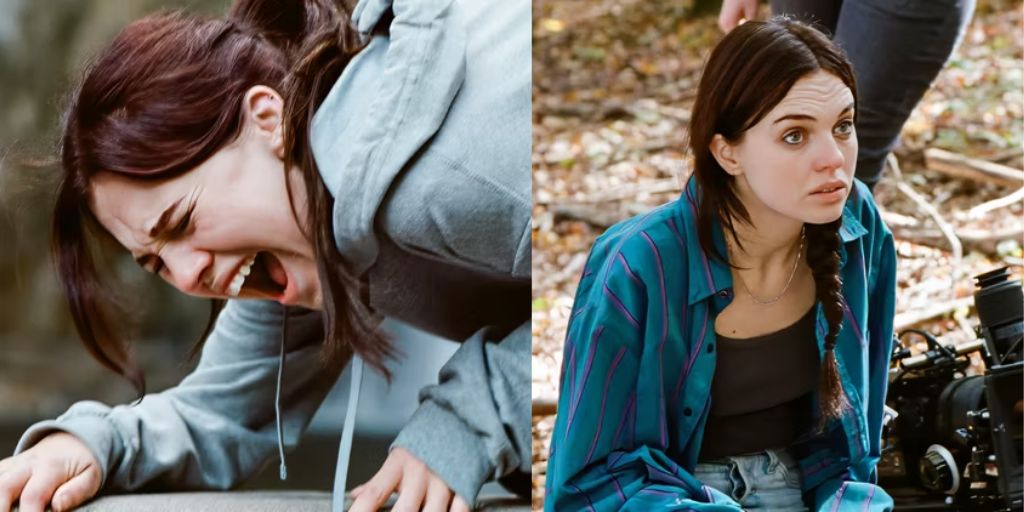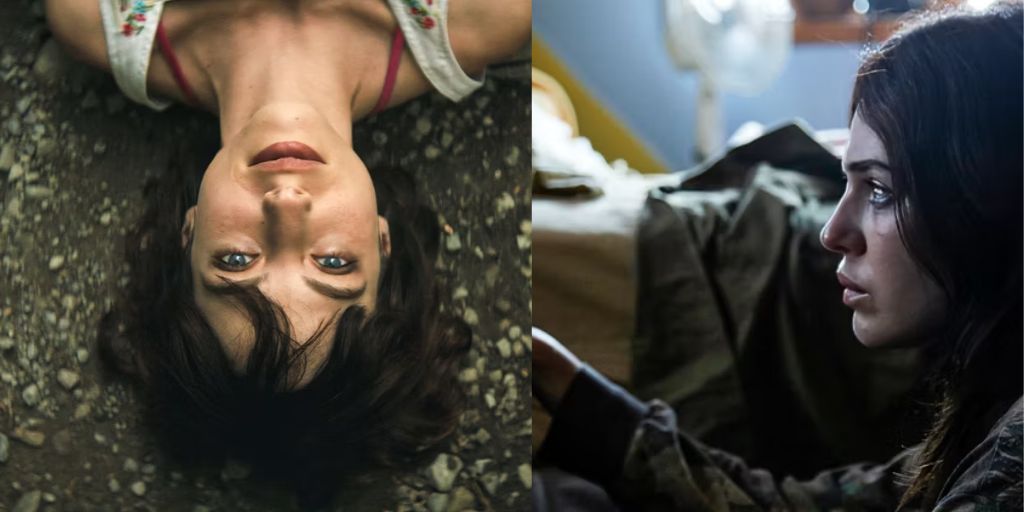What is it to make a movie? Often, we picture singular creators effortlessly crafting beautiful visions from their imagination for us to enjoy in the cinema’s darkness. Yet, even for those who study the creative process and eagerly learn about a film’s production, it’s rare to get a true look into how a film is made.
Is there a risk that years of hard work might only end up being a tribute to the struggles faced rather than a genuine artistic success? What happens to such a complex legacy?
For filmmaker Zia Anger, the answer is “My First Film,” a remarkable debut feature that tackles an unreleased earlier film and her solo performance, becoming one of the most surprising and layered films of the year. It’s a meta film that stands out.
The first time I encountered Anger was at the Tacoma Film Festival in 2019, where she presented her solo performance, also titled “My First Film.” With a laptop that she used to project onto the screen, she shared clips from her first feature, Always All Ways, Anne Marie, and reflected on the process in typed messages.
This earlier work had never been distributed, making the reflections deeply honest, often painful, and poetic in ways that have stayed with me.
While watching the new film, it became clear that this context is important. The two versions remain connected, as Anger’s film revisits her history by recreating her first production and bringing a similar perspective. It examines her past, revealing her insecurities, while giving her feature new life as it is revisited many years later.
What Is ‘My First Film’ About?
The film starts like Anger’s solo performance, using text and clips to recount a frustrating interview, which then leads into a narration rather than just text on screen.
The typing is done by Vita, played by Odessa Young, known for The Damned, Manodrome, and Shirley. Vita reflects on her first feature made 15 years earlier.
She represents Anger in the story, showing the stressful process of making a film with friends and a troublesome boyfriend.
The film is charmingly shot, showing the group’s excitement and a scene where a plane flies dangerously low, highlighting their uncertainty. Vita voices concerns that their film might not turn out as hoped, reflecting the film’s honest portrayal of past mistakes.
The film’s creation was a team effort, and its issues stem from not appreciating this fact. Vita, as director, leads the story, but Anger’s solo performance adds depth by showing the crew’s experiences.
My First Film focuses on how the director may have neglected her crew’s needs, capturing moments of pain and regret. It’s not a romanticized look at the past but a genuine one, making us feel like we are witnessing something personal and fleeting.
‘My First Film’ Is a Bold New Beginning for Zia Anger
Anger’s film stands out by pulling back the curtain and breaking conventional storytelling. Comparisons to Joanna Hogg’s The Souvenir and Víctor Erice’s Close Your Eyes only touch on how My First Film extends beyond those films.

Anger’s approach is more fluid and intentionally scattered, as if we are recalling distant memories with her. This is most evident in the film’s bold and beautiful finale.
While the film retains its power and sense of loss, it also reveals something hopeful. It’s still challenging and somewhat chaotic, but that reflects the life of an artist. Anger seems to embrace this reality, and as her remarkable debut shows, we hope it marks the start of many more creative projects.
My First Film opens in U.S. theaters on August 30 and will be available on MUBI starting September 6.


















